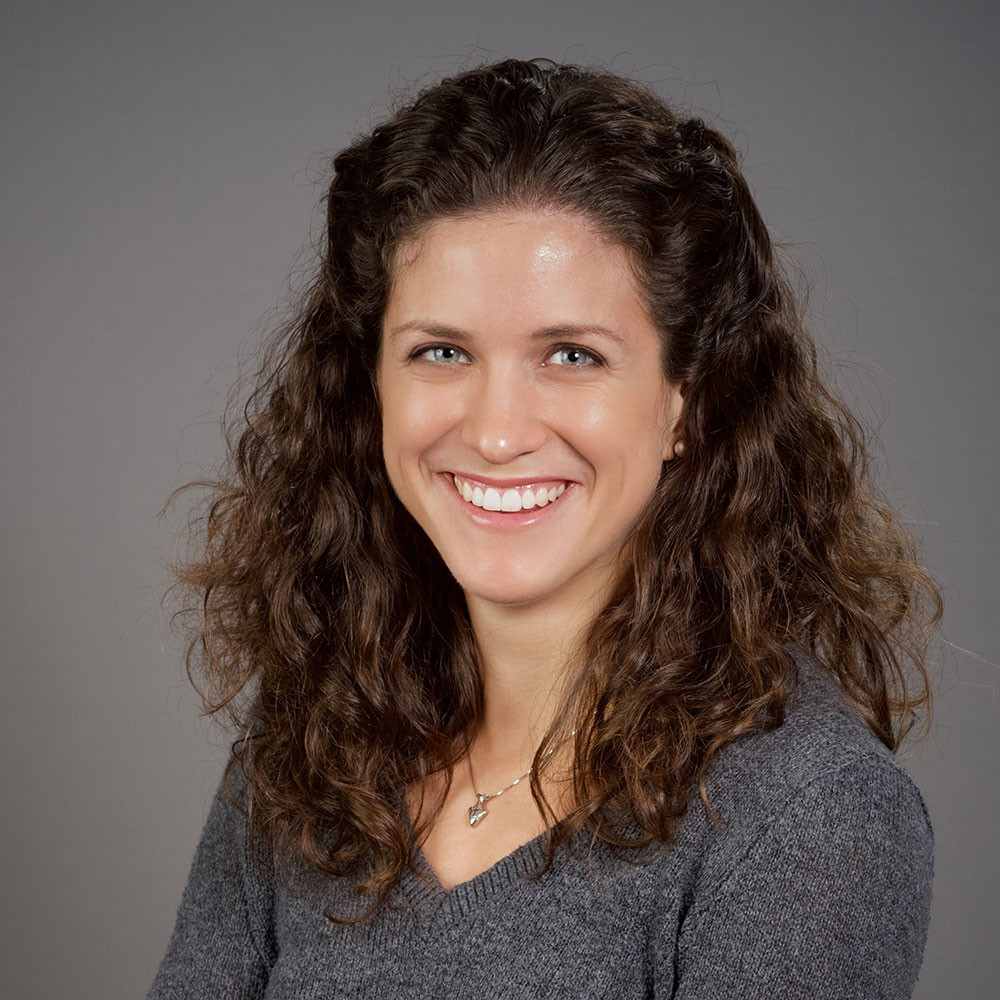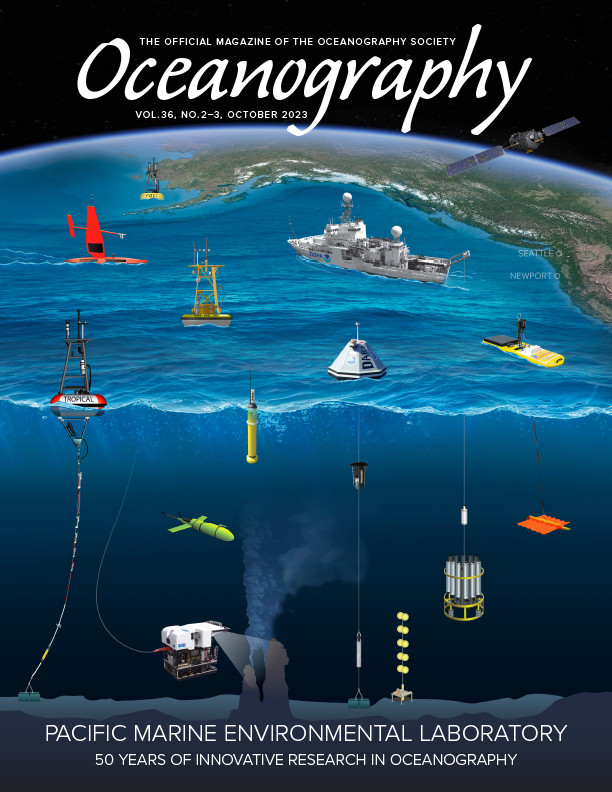Full Text
 |
REGINA GUAZZO, Oceanographer and Outreach Lead, Whale Acoustic Reconnaissance Project, Naval Information Warfare Center Pacific
Degree: When, where, what, and what in?
I earned my bachelor of science degree in marine science with a minor in biology from Rutgers, the State University of New Jersey, in 2013. While at Rutgers, I also took extra math classes beyond what was required for my degree. I completed my master of science in marine biology in 2016 and PhD in oceanography (focus in biological oceanography) in 2018 at Scripps Institution of Oceanography, University of California San Diego.
Did you stay in academia at all, and if so, for how long?
I received the SMART (Science, Mathematics, and Research for Transformation) Scholarship from the Department of Defense (DoD), which funded the last three years of my PhD. A requirement of this scholarship is that the recipient work for a DoD lab after graduating for the number of years that the scholarship was awarded. As a result, I left academia immediately after completing my PhD and started working at the Naval Information Warfare Center (NIWC) Pacific.
How did you go about searching for a job outside of the university setting?
During my second year of grad school, in order to fund the rest of my degree research, I was working on applications for the National Science Foundation (NSF) Graduate Research Fellowship Program (GRFP), the DoD National Defense Science and Engineering Graduate (NDSEG) Fellowship, and the NOAA Nancy Foster Scholarship, when my advisor suggested that I apply for the SMART Scholarship. It required that someone at a DoD lab commit to mentoring me and to hiring me once I graduated. My advisor suggested I reach out to Tyler Helble, a Scripps graduate currently at NIWC. Tyler and I talked on the phone, and the work that he was doing sounded exciting and like a great opportunity, so I applied. I ended up receiving a few of the fellowships I applied for but selected the SMART Scholarship for the guaranteed (and really good!) job after graduation.
Is this the only job (post-academia) that you’ve had? If not, what else did you do?
Yes. I completed my required time at NIWC, but have decided to stay because I have enjoyed the work so much.
What is your current job? What path did you take to get there?
I am currently an oceanographer and an outreach lead at NIWC Pacific. Most of my oceanography work involves using passive acoustic monitoring as a tool for studying whale behavior. We track actively vocalizing whales in order to investigate their kinematic behavior, learn about their song patterns, and measure the intensity of their vocalizations. This work helps the Navy get baseline behavior information about these animals, which are protected under the Endangered Species Act and Marine Mammal Protection Act, and estimate whale abundance in our study areas. This is important for understanding and reducing the impact of Navy training and testing on protected species.
I also spend a significant amount of time doing outreach work. Currently, I oversee NIWC’s involvement with the NDSEG fellowship program. I run regular mentorship workshops for our scientists and engineers who are mentoring PhD fellows and conduct panel discussions for the PhD students.
I first got involved with bioacoustics through an NSF REU (Research Experiences for Undergraduates) internship at Duke University Marine Lab where I spent a summer listening to bottlenose dolphin whistles. I loved how bioacoustics combined my interests in ecology, math, physics, and music. After that summer, I decided to focus on bioacoustics for my PhD. At Scripps, I used passive acoustic monitoring to learn about the gray whale migration off the California coast.
I have always enjoyed teaching and giving back to the next generation of scientists, so outreach was a natural fit. I did some outreach work during my PhD—primarily by volunteering on a local whale watching boat to talk to the guests about whale sounds. I also took classes in college teaching and taught my own class during my final year of grad school. When I got to NIWC, I met with the outreach director and started volunteering for center events. I expressed my interest in being more involved and slowly was given more and more responsibility. When I first started at NIWC, I thought I would want to go back to academia so that I could teach, but instead I have been able to teach and mentor students while at NIWC! This has included encouraging young students interested in science by speaking to classes of K–12 students through Skype a Scientist and participating in the Letters to a Pre-Scientist program.
What did your oceanographic education (or academic career) give you that is useful in your current job?
I am always learning new things, but my oceanographic education gave me a solid foundation that has shaped my career. I learned how to do research, how to interact with other scientists, how to ask questions, and how to teach. I also learned the basics of oceanography and acoustics, was exposed to professors researching a diverse array of topics, and gained insights into my own research and other variables to consider when thinking about whale behavior.
Is there any course or other training you would have liked to have had as part of your graduate education to meet the demands of the job market?
I honestly felt lost when I first started at NIWC. In graduate school I was an expert in my research topic and my data set, and then I moved into this new job where I felt like I knew nothing (in addition to all the new acronyms that were being casually inserted into every conversation!). Thankfully, I work with a great team and met others who guided me through this transition.
In grad school, I would have liked more general training in how to be a professional scientist, including how to write proposals, how to write a peer review, how to respond to peer reviews, how to mentor students, and how to manage a lab. But I am always learning by reading research about mentorship and education, attending special sessions at conferences, and talking to others more senior than me.
Is the job satisfying? What aspects of the job do you like best/least?
It took me a few years before I felt like I belonged at my current job, but since finding my niche, I really enjoy my position. I work with a great team, and we get to do really cool research using unique data sets that allow us to ask questions that most people in my field aren’t able to investigate. I feel like I am making a difference in marine mammal conservation by working directly for the Navy, and I get to support the important defense work that the Navy does at the same time. I also love talking with students and getting paid to do outreach. Finally, my job has allowed me to move across the country with my active-duty spouse, which I don’t think I would be able to do in academia.
I think every job has downsides—my greatest frustration is the red tape that is everywhere in the government.
Do you have any recommendations for new grads looking for jobs?
Stay open to opportunities. I wouldn’t have thought I would enjoy a career with the Navy. Even when I applied for SMART, I thought I would only stay at my job for the minimum requirement and then move on to something else. But it has been a great opportunity and a job that is very rewarding.
Talk with people in careers that you think are interesting. Take advantage of opportunities to have lunch with senior scientists at conferences and contact former grads from your program. Learn about their career paths and ask them what they like or don’t like about their jobs.
But also consider what is important to you. Make a list of what you want most in a job and in your life. Your values will be unique and no one else can tell you what they should be. When you are considering job opportunities, rate them according to your values and how well they align with your goals for your life.

